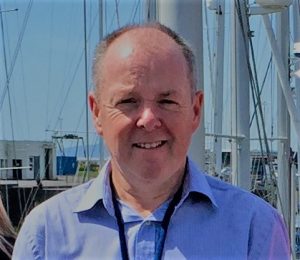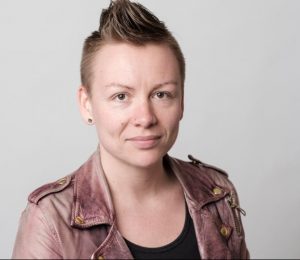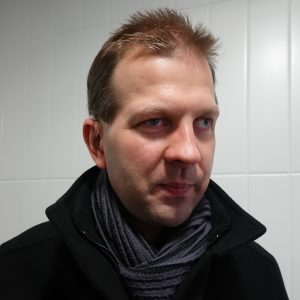Technology paired with human rights leads to the future
Deafblindness
6 Apr 2022
”Send an email or order a preset list of groceries with just the click of a button or custom make physical aids with a 3D-printer.” A bright technological future for people with deafblindness – if we trust Anita Schjøll Brede, one of the keynote speakers at the Nordic conference Today’s knowledge for tomorrow’s actions – a Nordic perspective on Deafblindness.
The conference will be held in Tampere, Finland, on September 20:th to 22:nd. It will be a conference where theory and practice will meet. Apart from the keynote speakers there will also be more than 40 workshops, short talks, and poster presentations.
The workshops have titles ranging from Technology enables independent living and Right time peer support made me stronger to Life skills, self-regulation and yoga for students who are congenitally deafblind.
Tomorrow’s knowledge already in action
 Many of the speakers and presenters have experience from both theory and practice and often use their practical experiences to develop theory or test theory in practice.
Many of the speakers and presenters have experience from both theory and practice and often use their practical experiences to develop theory or test theory in practice.
– Professor Marleen Janssen highlighted a couple of years ago that in our field we are perhaps strong in practice-based evidence, says Paul Hart from Sense Scotland, another of the keynote speakers.
– If we rethink the title of the conference, Today’s knowledge for tomorrow’s actions, then we might think that we have tomorrow’s knowledge being actioned today in the field of deafblindness.
An innovative and fast field
This short distance between theory and action is often an advantage, but Paul Hart points out that it also may be a risk, implementing new things without really grasping the totality of the theory.
Maria Creutz, Senior Adviser för Deafblind issues at Nordic Welfare Centre and in charge of the Nordic conference in Tampere, also characterise the field of deafblindness as innovative and fast.
– There are strengths as well, that we are working together, that we are sharing knowledge, and are willing to look into the future to reach more people with knowledge, says Maria Creutz.
Optimistic about technological future
 Continuing development of services for people with deafblindness depend on innovation, research, and technology. Anita Schjøll Brede, CEO and co-founder of the AI company Iris.ai, is optimistic about the future.
Continuing development of services for people with deafblindness depend on innovation, research, and technology. Anita Schjøll Brede, CEO and co-founder of the AI company Iris.ai, is optimistic about the future.
– When things are digitized, which means they are in code or software, at some point they become cheap, they become almost or entirely not physical and most importantly they become accessible to everyone, democratized.
Anita Schjøll Brede talks about the process of digitalization as a democratization process, showing the possibilities in a near future where digital aids could be free and accessible for everyone. She stresses the possibilities to adjust and fit the digital products better then we can today.
Easier to adjust aids for the individual
– We’re used to welfare technology where the aids that we need for people who are deafblind, or have any other disabilities, they are mass produced and they are brought to us in a governmental system, says Anita Schjøll Brede to give is a picture of a soon outdated system that was made to fit everyone, but only fit a few.
– There are so many opportunities out there, beyond the bulk, one-size-fits all.
Anita Schjøll Brede gives a couple of examples of how new technology, available to anyone now can make you turn on and off lights with your voice or order a preset list of groceries with a click of a button, or use a makerspace to build physical aids, for example with the use of a 3D-printer.
From declarations to real action
 Anita Schjøll Brede envisions a future where people’s needs can be met with accessible and cheap technology. To make that happen we need to pair the technological advances with visions and aims from a human rights perspective.
Anita Schjøll Brede envisions a future where people’s needs can be met with accessible and cheap technology. To make that happen we need to pair the technological advances with visions and aims from a human rights perspective.
– Freedoms and fundamental rights belong to all people. However, persons with deafblindness were for a long time seen as patients and objects of action, says Riku Virtanen, researcher at Åbo Akademi University and European regional representative in The World Federation of The Deafblind, WFDB.
But Riku Virtanen sees progress, especially in our Nordic societies, and he also has an optimistic view of the future.
– In recent years, there is progress towards becoming an equal subject of society. Through real-life stories, strengthening freedoms offer a better life for all of us, says Riku Virtanen.
